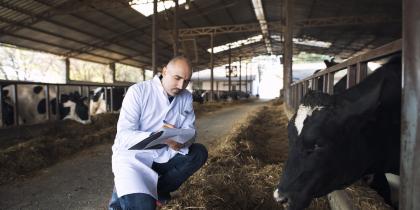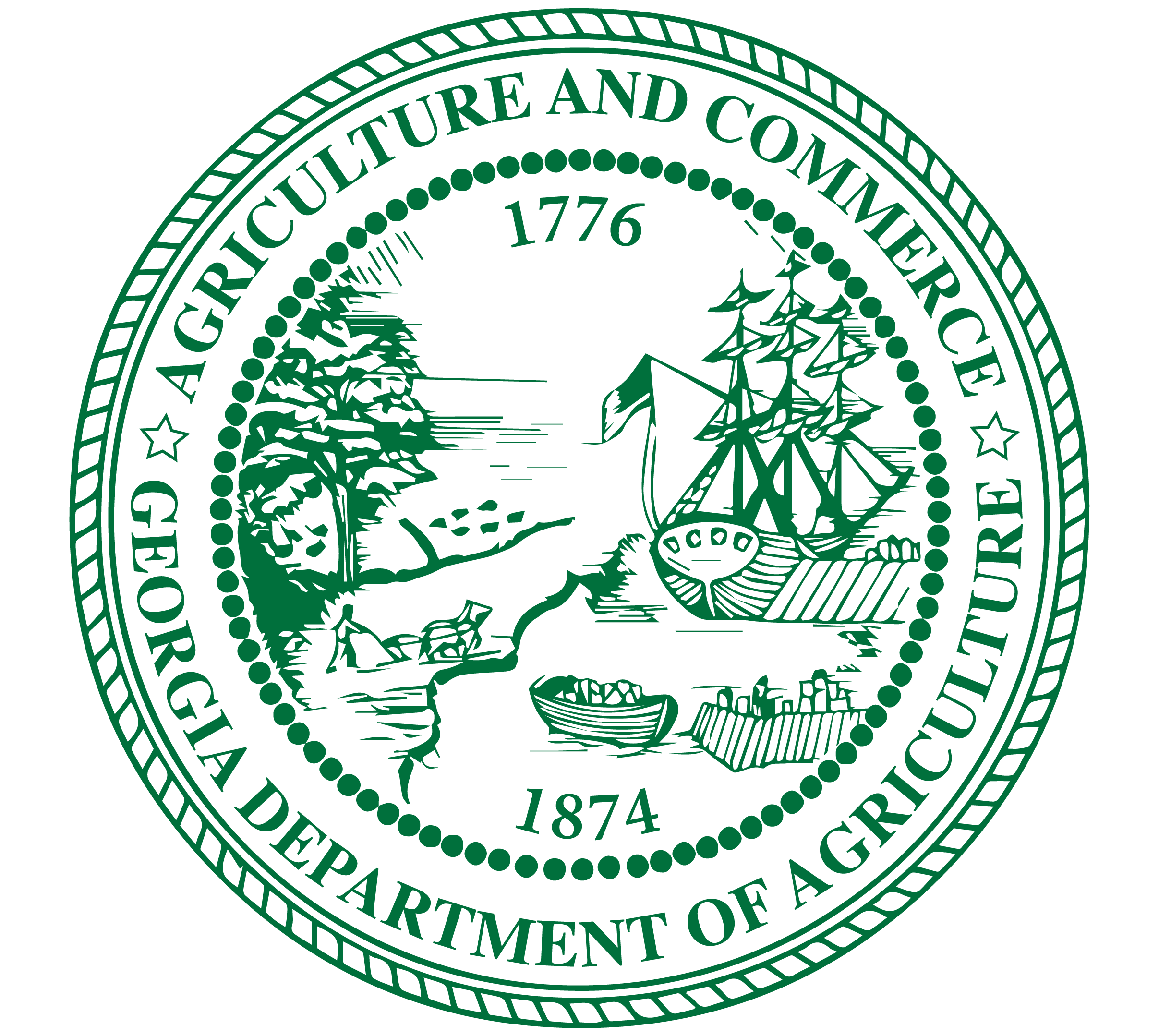
Animal Health & Diseases
The State Veterinarian's Office works to keep Georgia animals healthy. As part of this effort we provide information on major diseases, manage reporting of contagious disease outbreaks, and work with farmers on animal traceability.
The primary responsibility for the control of rabies in Georgia resides with the County Boards of Health.
- Questions: Division of Public Health, Medical Epidemiologist, (404) 657-2588, https://dph.georgia.gov/environmental-health/rabies
- Rabies & Poison Control Center (animal bites) 24/7 support:
- Atlanta: 404-616-9000
- Statewide: 800-282-5846
Highlights
-
General Information
The State Veterinarian's Office and GDA's Animal Industry team work to prevent, control, and eradicate many infectious and communicable diseases of livestock and other domestic animals. To this end, we provide information to farmers and veterinarians, gather reports of animal diseases within the State, monitor animal sales and exhibitions, and help producers register for animal disease traceablity programs.
We are responsible for monitoring, detecting, and controlling over 100 animal diseases that can have a significant impact on the agricultural economy and trade, or that can be contagious to both animals and people. These are known as Reportable Animal Diseases.
We maintain extensive surveillance programs for foreign animal diseases, such as highly pathogenic avian influenza and exotic Newcastle disease in poultry, and foot-and-mouth disease and bovine spongiform encephalopathy (i.e. mad cow disease) in cattle. We also monitor animal diseases that are endemic to the area, such as Johnes disease in ruminants, equine infectious anemia in equine, and scrapie in sheep and goats.
As part of this surveillance, GDA staff inspect animals and collect samples for testing at livestock markets, slaughter facilities, equine sales establishments, flea markets, and animal exhibitions.
We also regulate the transportation of animals, disposal of animal carcasses, and the rendering of animal tissues into animal feeds, all of which are vital components of an overall animal health program.
-
Reportable Animal Diseases
Cases of many specific animal diseases must be reported to the proper authorities. These are known as "Reportable Animal Diseases" (RADS). See full RADS information.
Veterinarians, veterinary technicians, lab technicians, wildlife biologists, and animal owners must report if a clinical or laboratory diagnosis shows that a disease is present. You should also report based on a reasonable suspicion.
It’s a crime, punishable in a court of law, to willfully introduce one of these animal diseases or fail to notify officials of a disease once you’ve observed it.
Reporting helps to identify outbreaks and prevent human transmission in cases of zoonotic disease. All reports are confidential and not open to inspection by the public.
-
Biosecurity
Biosecurity is the practice of preventing the spread of harmful organisms, such as viruses, bacteria, fungi, and parasites, that can cause disease. It's important to protect animals, people, property, and the environment from these organisms.
To learn more about biosecurity please visit our Biosecurity page
-
Traceability
Animal Disease Traceability Info
Animal Disease Traceability is a Federal-State-Industry partnership designed to help livestock producers respond to, and minimize the impact of, an animal disease outbreak. When a disease outbreak occurs, animal health officials need to know:
-
Which animals are involved in a disease outbreak
-
Where the infected animal are currently located
-
What other animals might have been exposed to the disease.
By participating in Animal Disease Traceability, you will join a national disease response network built to protect your animals, your neighbors, and your economic livelihood against the devastation of a foreign animal disease outbreak.
Take the first step - Register your premises today! See our Premises Registration page for more information.
For more information visit the USDA Animal Disease Traceability Website.
-
-
Livestock Branding
Any person owning livestock can register a brand by applying to the Commissioner of Agriculture for a certificate of registration. Brand registration and inspection are not required in the state of Georgia; however the fact that livestock is branded with a registered mark is prima-facie evidence that such livestock belongs to the person to whom the registration is issued. To register, fill out our online Application for Brand form.
Livestock brands are reviewed and purged on a 5-year cycle. Everyone with registered brands must renew their information every year ending in 4 and 9 (e.g., 2024, 2029, etc.).
View Currently Active Registered Brands (updated quarterly)
Important: we mail a reminder to all brand registrants when it is time to renew. If you do not respond within the given deadline, your brand registration may be canceled, and the certificate of brand registration may be reassigned to another person.
Make sure to keep your contact information current with the Georgia Department of Agriculture. If you miss this critical 5-year communication and forget to renew, your registration may be canceled.
Georgia state law governing brand registration can be found in the Official Code of Georgia Annotated at Title 4, Chapter 2, Marks and Brands O.C.G.A §§ 4-2-1 — 4-2-5.
Contact Us
-
Office of the Georgia State Veterinarian United States of America
- AnimalHealth@agr.georgia.gov
- Tel: (404) 656-3667
- Office hours: M-F from 8:00 AM - 4:30 PM
-
RADs Online Report Form
-
Animal Health Resources

